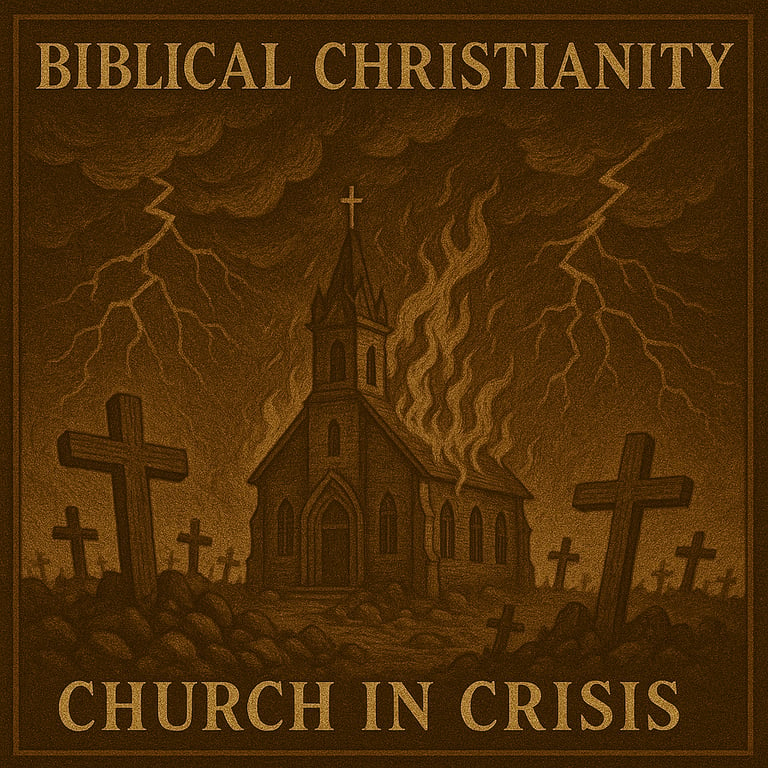Does the Church Hold a Christian Worldview?


Lesson 2: The Bible Is Either True or It’s Not — The Crisis of Inerrancy
The First Pillar: Under Attack
Every doctrine of the Christian faith stands on this one foundation:
God has spoken — and His Word is true.
If this is compromised, everything else crumbles.
And that’s exactly what’s happening in the Church today.
A Growing Doubt in God’s Word
Ask the average churchgoer:
“Is the Bible completely true?”
You won’t get a confident “yes” as often as you should.
Most Americans still own a Bible.
Many still quote from it.
But far fewer actually believe it’s all true — without error, without contradiction, without exception.
The General Reality
Studies vary slightly, but here’s the bottom line:
A large portion of professing Christians no longer believe the Bible is fully accurate.
Among pastors, it’s not much better.
Even in evangelical circles, about half question or reject full inerrancy.
The Bible is still respected.
But it is no longer trusted.
Why This Matters So Deeply
Truth becomes subjective.
If the Bible isn’t fully true, then truth becomes a matter of opinion. What feels right replaces what is right.Doctrine becomes optional.
If some verses are wrong, who decides which ones? Suddenly, everyone becomes their own theologian.Sin becomes negotiable.
Without a clear standard, moral lines blur. The fear of God fades. Holiness becomes old-fashioned.The Gospel becomes diluted.
If Scripture can be questioned, then the cross can be questioned. Hell can be dismissed. Jesus can be redefined.
The Danger of a Paper-Only Bible
We claim to be a people of the Book.
But in many churches, it’s just a prop.
It sits on the pulpit, unopened.
It’s quoted out of context, twisted to fit agendas.
It’s reduced to a collection of nice sayings rather than the sword of the Spirit (Eph. 6:17).
“The grass withers, the flower fades,
but the word of our God will stand forever.” — Isaiah 40:8
If the Bible is not our authority, what is?
How Did We Get Here?
It didn’t happen overnight.
It happened slowly, subtly.
Seminaries prioritized scholarship over submission.
Churches traded expository preaching for TED Talks.
Pastors feared offending more than they feared compromising.
Christians stopped reading the Bible and started listening only to culture.
The serpent’s old whisper found new ears:
“Did God really say…?” (Gen. 3:1)
And the Church, like Eve, listened.
Real-Life Consequences
Churches affirm sin rather than call for repentance.
Youth ministries entertain but don’t disciple.
Christians defend feelings more than they defend truth.
Doctrine is labeled divisive instead of vital.
This is not harmless drift. This is spiritual disaster.
When the foundation is cracked, the whole house is in danger.
This Is Not New — But It Is Worse
The Church has always had to contend for the faith (Jude 3).
False teachers have always existed.
But today, the denial of Scripture comes from inside the house.
It’s not just heretics outside the walls.
It’s pastors in pulpits. Professors in seminaries. Elders in boardrooms.
“They have healed the wound of my people lightly,
saying, ‘Peace, peace,’ when there is no peace.” — Jeremiah 6:14
But There Is Hope — Always
God has always preserved a remnant.
There are still churches that preach the whole counsel of God (Acts 20:27).
There are still pastors who tremble at His Word (Isa. 66:2).
There are still saints who cherish their Bibles and live by them.
The Word of God is not bound (2 Tim. 2:9).
But it must be believed, not just quoted.
Our Task Is Clear
We must return to sola Scriptura — Scripture alone.
Not Scripture + tradition.
Not Scripture + opinion.
Not Scripture + what culture finds acceptable.
The Bible is enough.
“Forever, O LORD, Your word is firmly fixed in the heavens.” — Psalm 119:89
A Call to Action
Read the Bible. Not occasionally. Daily. Deeply.
Teach the Bible. In the home, in the church, without apology.
Preach the Bible. Verse by verse. Book by book.
Defend the Bible. With gentleness and reverence (1 Peter 3:15).
Submit to the Bible. Let it confront you. Change you. Rule you.
The Stakes Could Not Be Higher
If we lose Scripture, we lose the Gospel.
If we lose the Gospel, we lose souls.
And if we lose souls, we answer to God.
“If the foundations are destroyed,
what can the righteous do?” — Psalm 11:3
What’s Next
In the next lesson, we’ll look at the second vital truth:
Jesus is the only way to God.
Another truth under fire — and another we must fiercely defend.
But it all starts here.
If we don’t trust the Bible, we won’t trust the Christ it proclaims.
So we choose today:
Do we stand on the rock of God’s Word — or on the sand of human opinion?
Only one will endure the storm.
